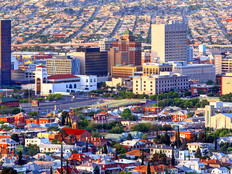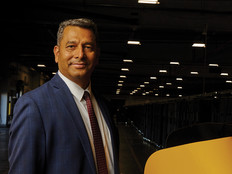Mobile Video Conferencing Expedites Search Warrants
In most jurisdictions, judges are in high demand around the clock for detectives who need them to issue search warrants. In San Antonio, judges from the Municipal Court are able to meet that demand by conducting court whenever they need to, using notebook computers equipped with mobile video conferencing software.
"The workforce of today demands mobility and flexibility, forever changing the face of enterprise communication," says Roopam Jain, principal analyst with Frost & Sullivan. "Mobile video offers a means to augment in-office video conferencing and cost-effectively extend the reach of existing solutions."
Howard Lichtman, president of the Human Productivity Lab consultancy, says mobile video conferencing growth stems from increased bandwidth, better quality of service and availability of robust mobile devices with cameras.
Mobile Movement
State and local governments and constituents are starting to catch the mobile video wave. The San Antonio Municipal Court began experimenting with the technology a few years ago when one of the judges needed more time at home to care for her child. The technology allowed her to handle traffic court inquiries via her notebook.
The success of that implementation led the court and police department to collaborate on a mobile video conferencing initiative. Typically, search warrants require face-to-face meetings with judges so officers can be sworn in and obtain warrants. "If you need a warrant signed at 2 a.m. and there isn't a judge at court, you might have to go to the judge's house," says Judge John W. Bull of the San Antonio Municipal Court, who added that the process could take several hours and slow an investigation.
Now, San Antonio detectives can communicate via mobile video conferencing with judges to obtain search warrants from their squad cars or anywhere else they have Internet access. Using notebooks and Cisco Jabber Video Enterprise clients, judges can administer the oath online and digitally sign the warrants from home.
2,271 metric tonsThe reduction in carbon dioxide emissions over five years from an organization implementing four video conferencing or telepresence rooms — an amount equivalent to the annual greenhouse gas emissions of more than 400 vehicles
SOURCE: Carbon Disclosure Project
The city also extended mobile video conferencing to residents through an interactive kiosk pilot project. At three Cisco video kiosks in the city, people can meet with a judge to resolve Municipal Court offenses and pay fines via credit card.
Lichtman says mobile video conferencing allows organizations to communicate more effectively, whether workers are in the field, at the airport, in a hotel room or at home. More state and local governments will find creative ways to tap into the benefits of the technology.
Say a road department worker is trying to communicate with the office about a broken-down truck. Mobile video conferencing enables the manager to see the problem and collaborate with the staff to find a solution.
For the San Antonio Municipal Court, mobile video conferencing aids the agency in serving the city and its residents. The technology expedites police investigations so cases can be resolved more quickly, and gives residents more options in handling traffic offenses. "This gives us the opportunity to get the human element back into the process," Judge Bull says.








